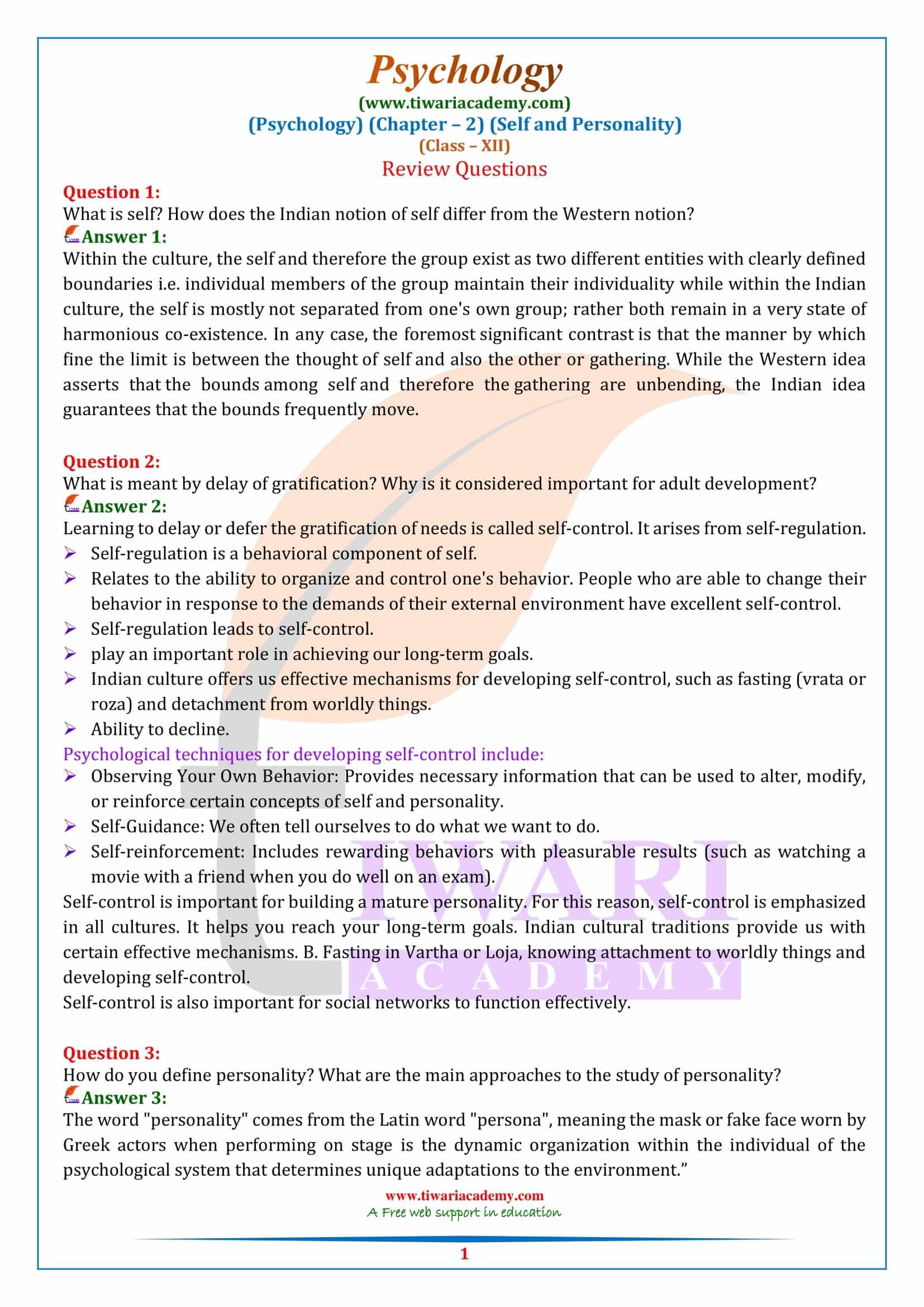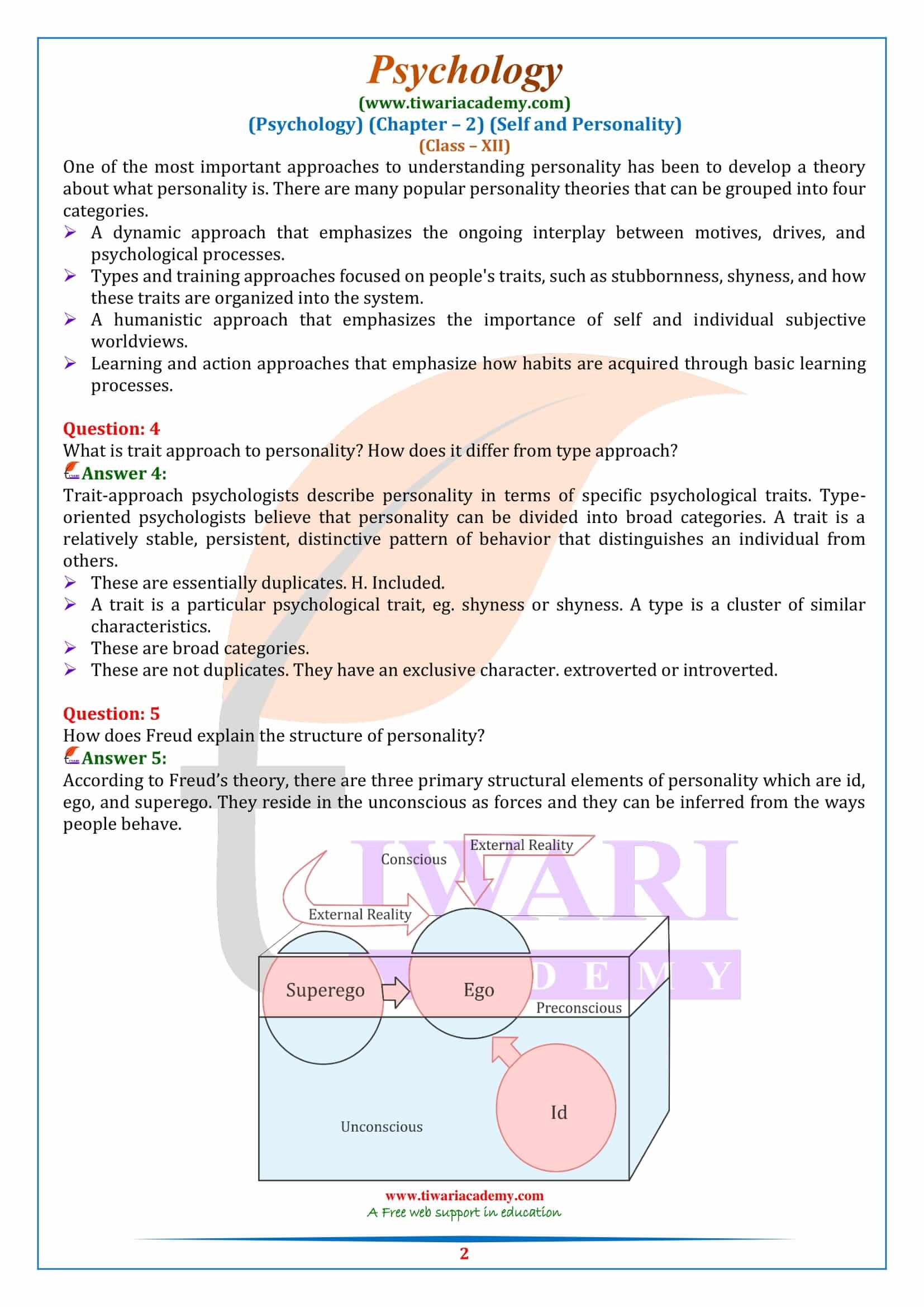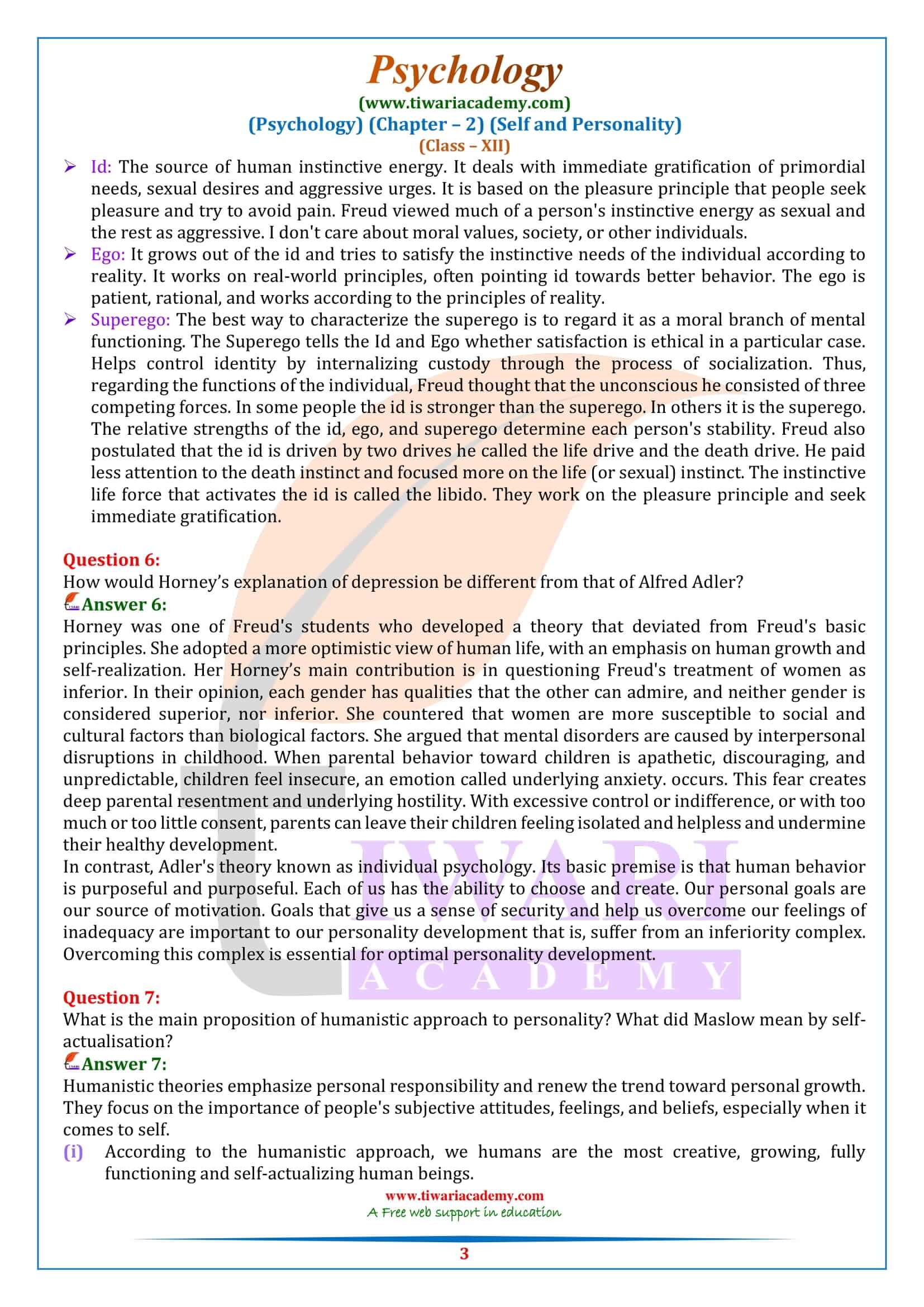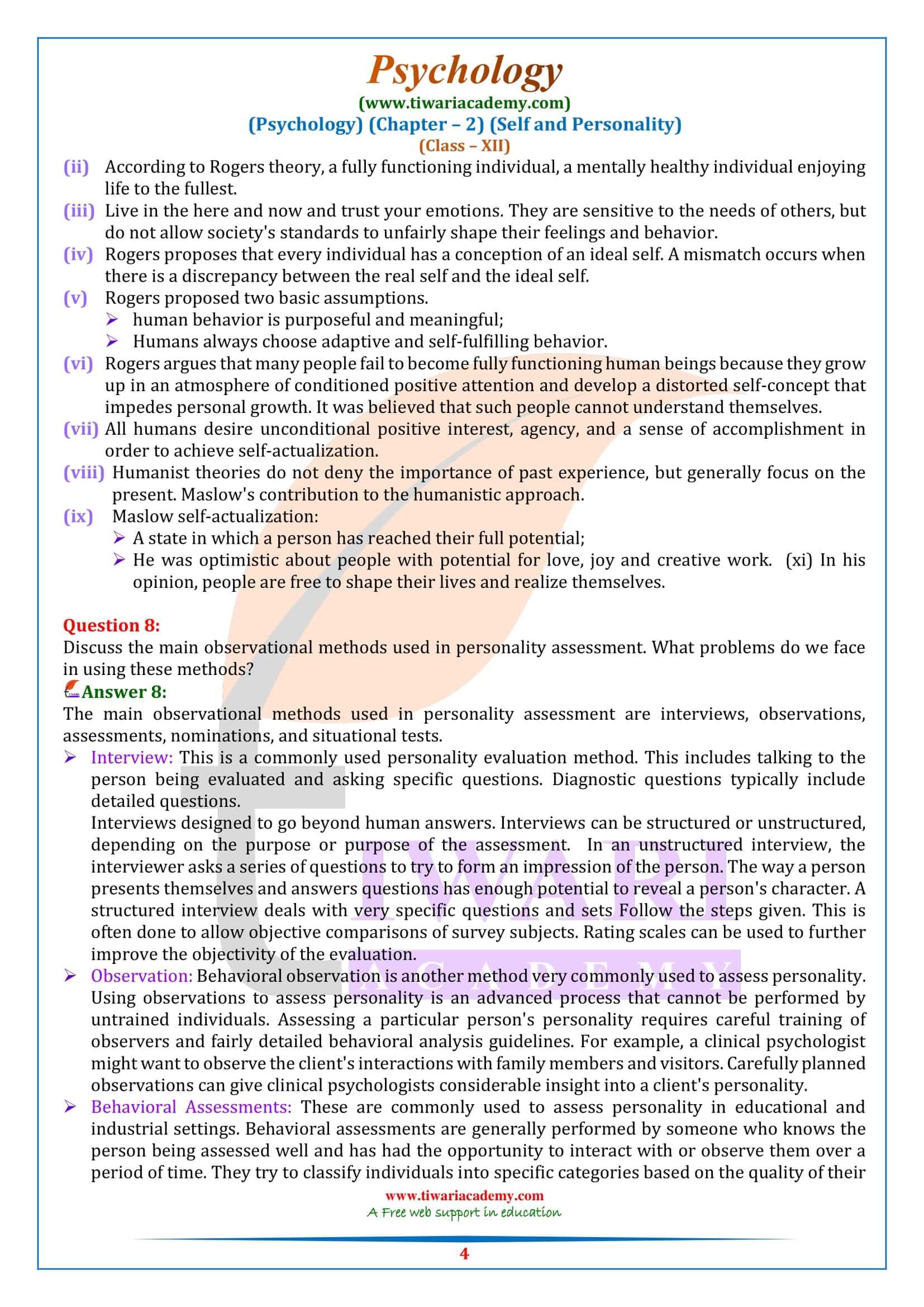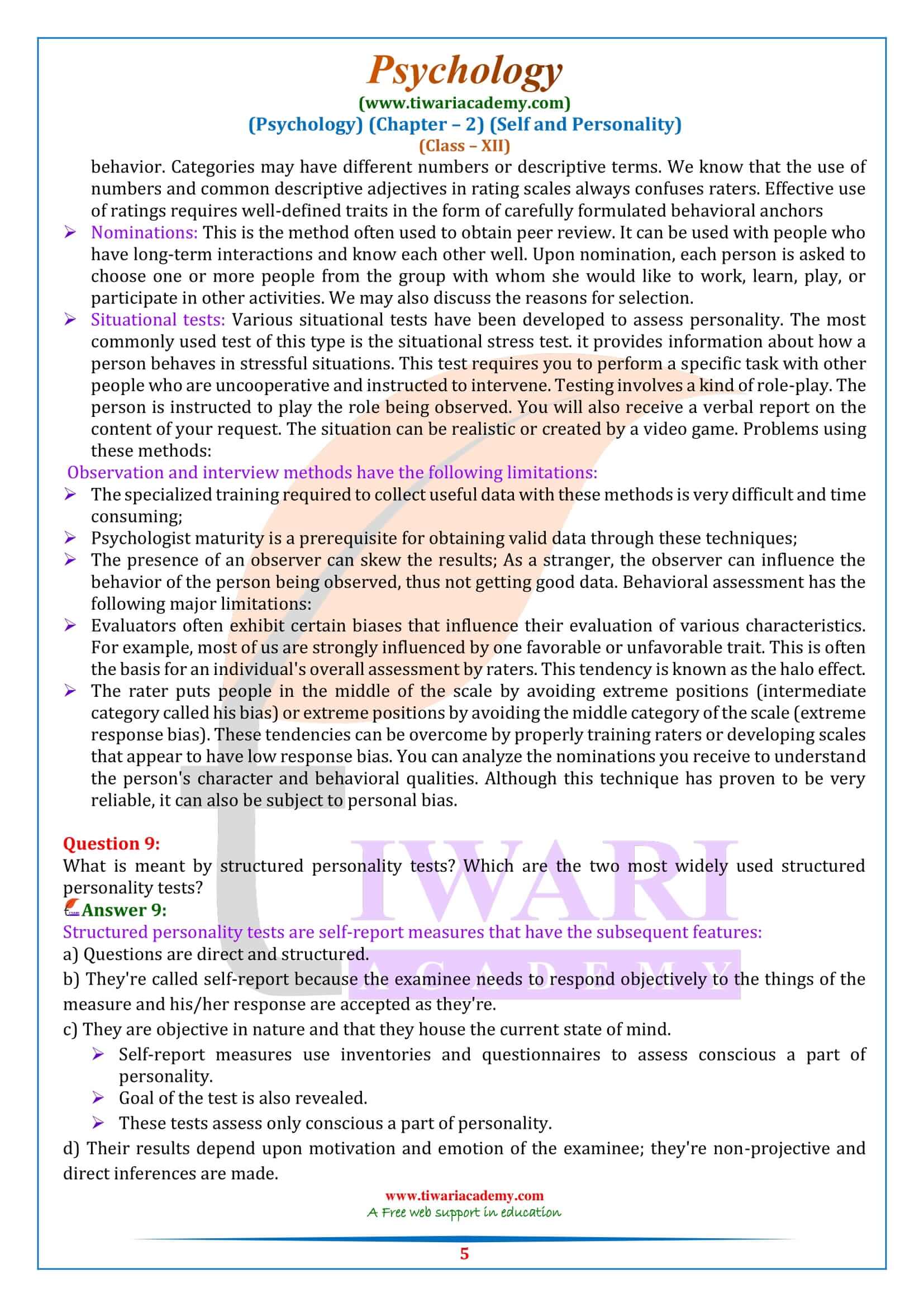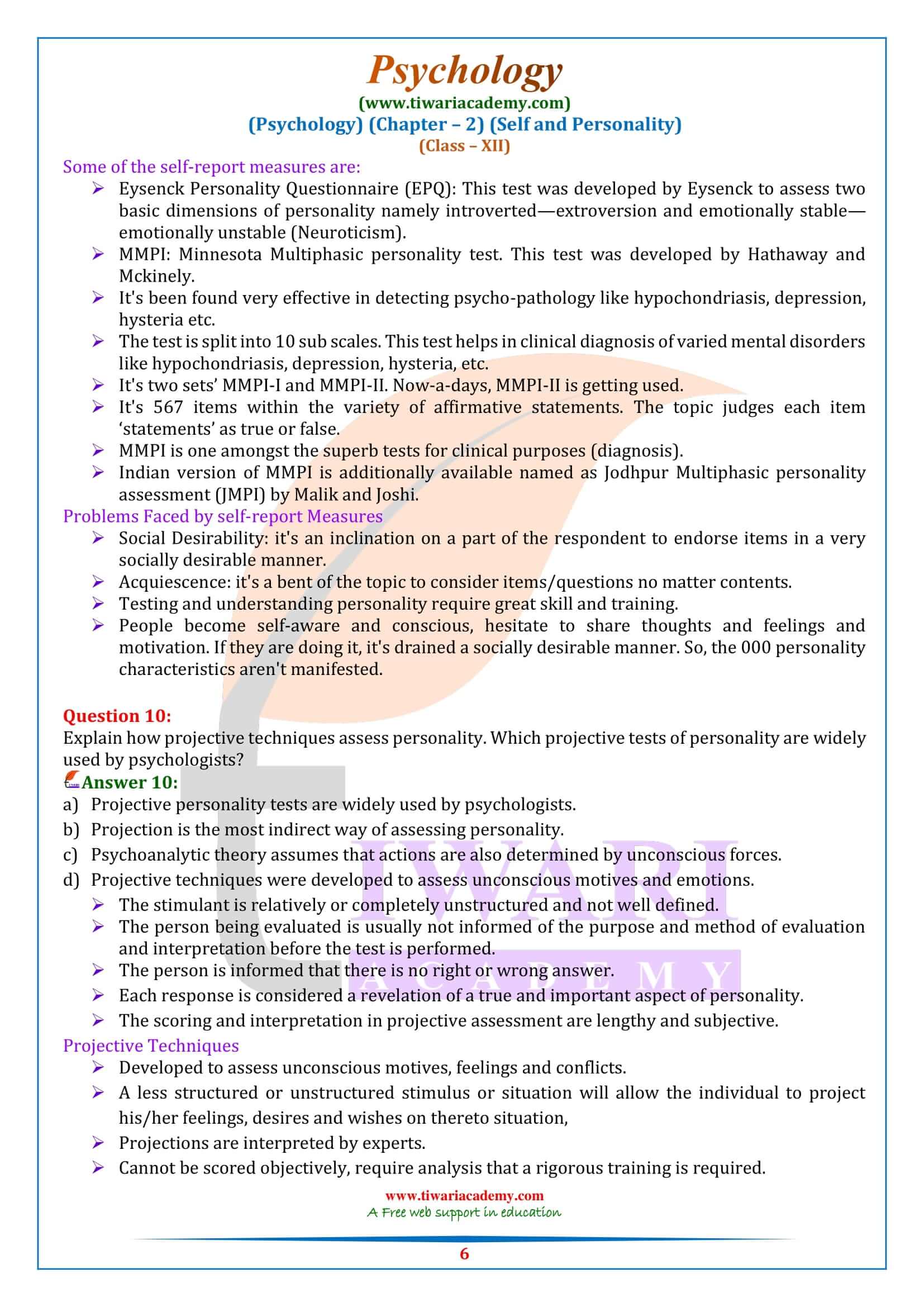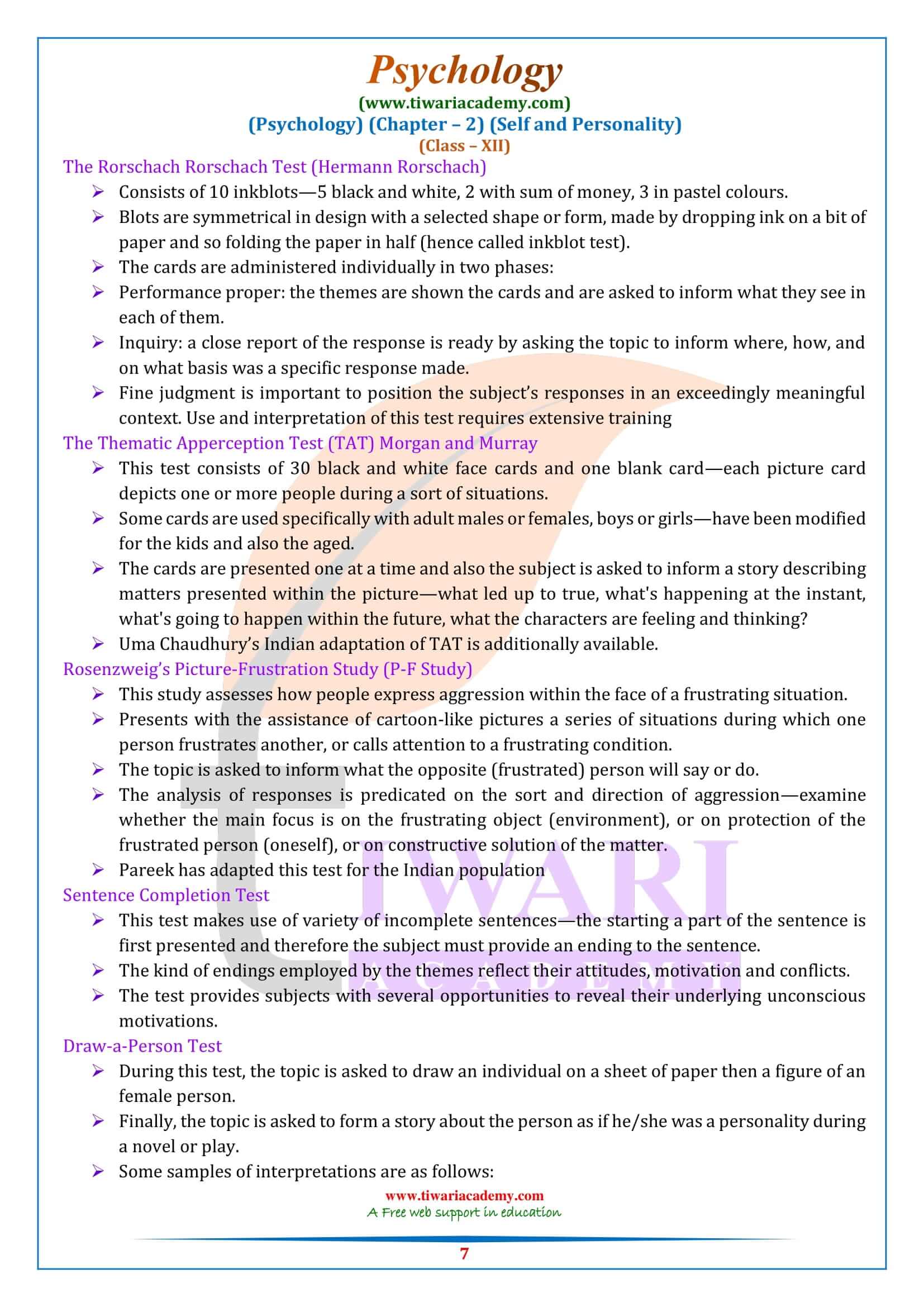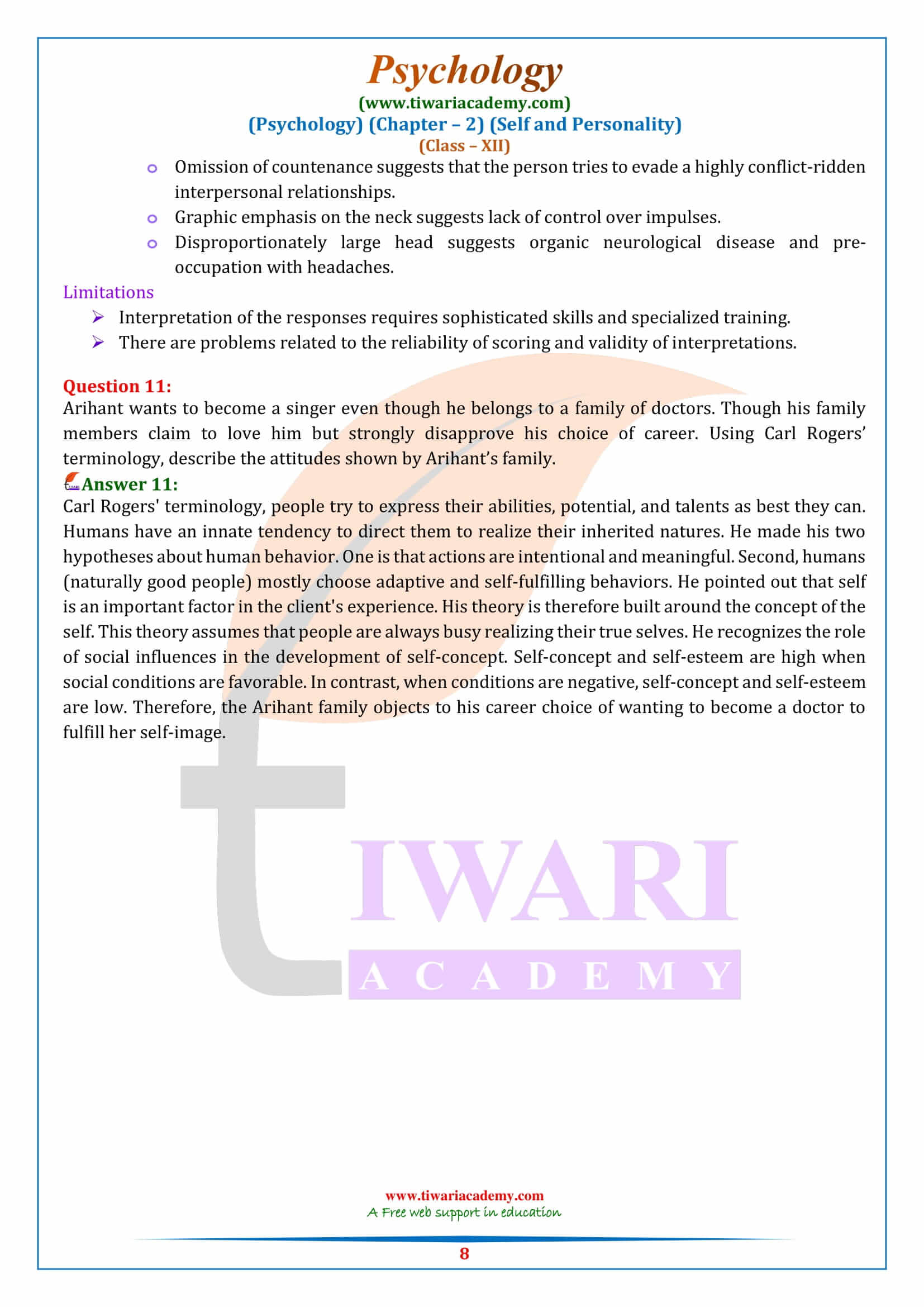NCERT Solutions for Class 12 Psychology Chapter 2 Self and Personality prepared and modified for new academic session 2025-26. Class 12th Psychology question answers and extra important questions are helpful not only for CBSE but the other state board also.
NCERT Solutions for Class 12 Psychology Chapter 2
Class 12 Psychology Chapter 2 Self and Personality Question Answers
What is self? How does the Indian notion of self differ from the Western notion?
Within the culture, the self and therefore the group exist as two different entities with clearly defined boundaries i.e. individual members of the group maintain their individuality while within the Indian culture, the self is mostly not separated from one’s own group; rather both remain in a very state of harmonious co-existence.
In any case, the foremost significant contrast is that the manner by which fine the limit is between the thought of self and also the other or gathering. While the Western idea asserts that the bounds among self and therefore the gathering are unbending, the Indian idea guarantees that the bounds frequently move.
How do you define personality? What are the main approaches to the study of personality?
The word “personality” comes from the Latin word “persona”, meaning the mask or fake face worn by Greek actors when performing on stage is the dynamic organization within the individual of the psychological system that determines unique adaptations to the environment.”
One of the most important approaches to understanding personality has been to develop a theory about what personality is. There are many popular personality theories that can be grouped into four categories.
- A dynamic approach that emphasizes the ongoing interplay between motives, drives, and psychological processes.
- Types and training approaches focused on people’s traits, such as stubbornness, shyness, and how these traits are organized into the system.
- A humanistic approach that emphasizes the importance of self and individual subjective worldviews.
- Learning and action approaches that emphasize how habits are acquired through basic learning processes.
What is trait approach to personality? How does it differ from type approach?
Trait-approach psychologists describe personality in terms of specific psychological traits. Type-oriented psychologists believe that personality can be divided into broad categories. A trait is a relatively stable, persistent, distinctive pattern of behavior that distinguishes an individual from others.
- These are essentially duplicates. H. Included.
- A trait is a particular psychological trait, eg. shyness or shyness. A type is a cluster of similar characteristics.
- These are broad categories.
- These are not duplicates. They have an exclusive character. extroverted or introverted.
How would Horney’s explanation of depression be different from that of Alfred Adler?
Horney was one of Freud’s students who developed a theory that deviated from Freud’s basic principles. She adopted a more optimistic view of human life, with an emphasis on human growth and self-realization. Her Horney’s main contribution is in questioning Freud’s treatment of women as inferior. In their opinion, each gender has qualities that the other can admire, and neither gender is considered superior, nor inferior. She countered that women are more susceptible to social and cultural factors than biological factors.
She argued that mental disorders are caused by interpersonal disruptions in childhood. When parental behavior toward children is apathetic, discouraging, and unpredictable, children feel insecure, an emotion called underlying anxiety. occurs. This fear creates deep parental resentment and underlying hostility. With excessive control or indifference, or with too much or too little consent, parents can leave their children feeling isolated and helpless and undermine their healthy development.
In contrast, Adler’s theory known as individual psychology. Its basic premise is that human behavior is purposeful and purposeful. Each of us has the ability to choose and create. Our personal goals are our source of motivation. Goals that give us a sense of security and help us overcome our feelings of inadequacy are important to our personality development that is, suffer from an inferiority complex. Overcoming this complex is essential for optimal personality development.
